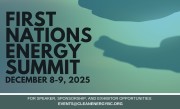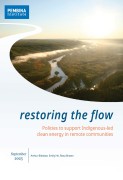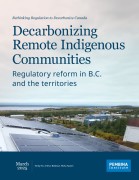
Arthur Bledsoe is a senior analyst on the Renewables in Remote Communities team based in Vancouver. Arthur's recent work has focused on the implementation of UNDRIP / DRIPA in the energy sector, regulatory reform to support clean energy development and diesel reduction, and Indigenous leadership in the energy transition. Arthur's work brings together perspectives from First Nations, utilities, regulatory experts, and government bureaucrats to identify practical avenues for policy reform that respect Indigenous rights, increase community self-sufficiency, and step remote community energy systems closer to energy sovereignty for First Nations.
Arthur holds a Master of Public Policy and Global Affairs from the University of British Columbia and a Bachelor of Engineering from Dartmouth College. Arthur's commitment to clean energy policy and Indigenous rights stems from his passion for being in nature, preferably pedaling his mountain bike or paddling his canoe.
Contact Arthur Bledsoe
Arthur Bledsoe's Research & Analysis

Becoming an Independent Power Producer
An introductory guide to building a renewable energy project in your remote community


High-penetration renewable energy microgrids
Maximizing community diesel reduction


First Nations Energy Summit
Transforming Communities: Empowering Indigenous Leadership for a Sustainable Energy Future
Remote communities increasingly turning to renewables for energy security
National report shows positive signs, but to truly advance nation-building, governments must commit to keeping and strengthening policies that deliver results



